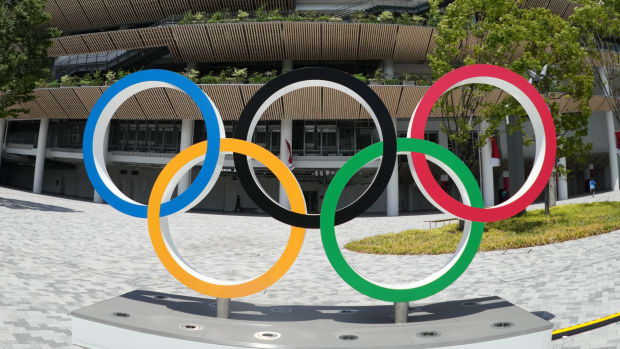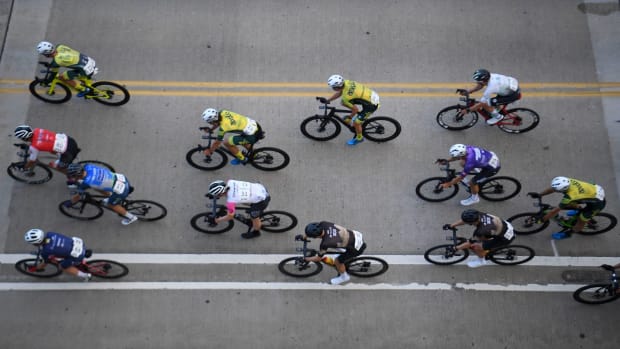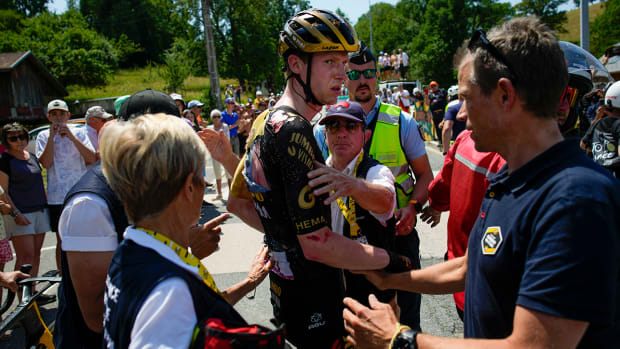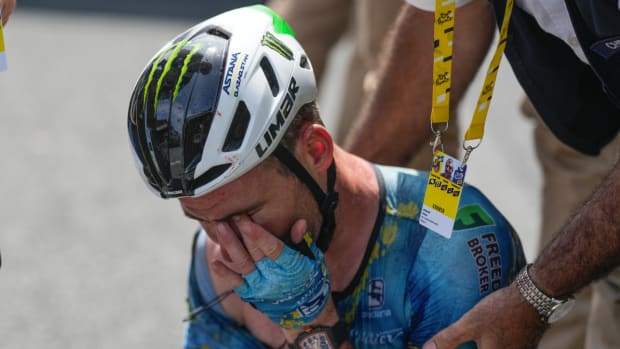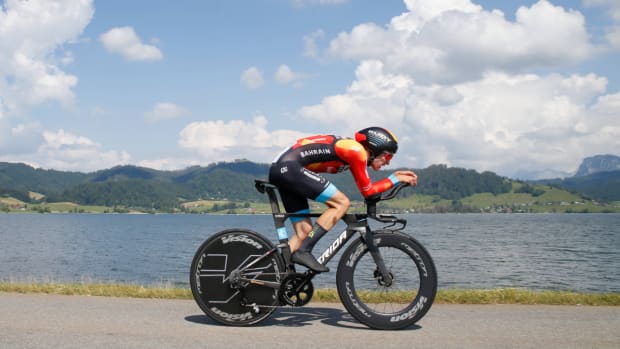Main findings in year-long probe into doping in cycling
GENEVA (AP) The Lance Armstrong era of massive doping was revisited in a scathing, 227-page report detailing cycling's historic culture of drug use and investigating alleged mismanagement by the International Cycling Union.
The year-long probe was been ordered by the governing body's new leadership as it tries to build confidence in cycling's future after a U.S. Anti-Doping Agency report exposed Armstrong's doping in 2012.
Armstrong was among 174 witnesses who met with the Switzerland-based Cycling Independent Reform Commission (CIRC).
Here are some key findings in its report:
---
BAD LEADERSHIP
The report concludes that the UCI knew doping was endemic in the 1990s and elite road cycling was ''infested'' with EPO, the endurance-boosting drug of choice. Still, it says UCI had ''inadequate'' anti-doping policies, tolerated cheating and viewed doping as a serious problem only when it endangered riders' health.
The two UCI presidents throughout Lance Armstrong's career - Hein Verbruggen and Pat McQuaid - repeatedly ''defended or protected'' the American despite ''strong reason to suspect'' he was doping.
''Going after the cheaters was perceived as a witch-hunt that would be detrimental to the image of cycling,'' the report concluded.
---
LANCE PROTECTED
The UCI viewed Armstrong as cycling's ''pop star ... a celebrity rider (who) would make cycling more attractive,'' the report said, adding that ''Lance Armstrong arrived at the perfect time.''
Cycling needed a superstar after the scandal-hit 1998 Tour de France, and Armstrong fit the bill perfectly after his return as a cancer survivor.
When Armstrong tested positive during the 1999 Tour race for a corticosteroid - a medication he was not permitted to use - the UCI accepted a back-dated prescription to solve the problem. That year, Armstrong won the first of seven straight Tour titles.
The report says the UCI committed a ''serious breach of its obligation ... to govern the sport correctly.''
---
NO PAID COVER-UP
Though the report confirms Armstrong had a special relationship with the UCI, it found no evidence to prove allegations he paid the governing body to close doping cases.
Former teammate Floyd Landis claimed Armstrong told him of positive tests for EPO at the 2001 Tour de Suisse which were hushed up by a financial settlement with Verbruggen.
The report says Armstrong's suspicious test results were not officially positive and did not find any proof that a $25,000 donation by the American to the UCI in 2002 was linked to that case.
It also found no proof that a later $100,000 donation was linked to a UCI-commissioned report debunking French daily L'Equipe's claims in 2005 that Armstrong's samples from the 1999 Tour had EPO traces.
---
STILL DOPING
Though there are no major new revelations in the report, the CIRC panel believes doping is still rife in elite cycling.
One ''respected'' witness estimated that around 90 percent of riders are doping, while ''three to four'' top teams have a widespread reputation for cheating.
The report suggested ''doping doctors'' outside team control are assisting riders who have adapted to improved testing and detection methods.
However, it said many are using micro doses to avoid detection and that performance gains of ''perhaps between 3-5 percent'' are found rather than up to 15 percent in the EPO era.
''Riders will start to believe that they can have a career riding clean,'' the report notes with optimism. ''This is a key development in the fight against doping.''
---
WHAT NEXT?
The investigation panel sent the UCI a long list of recommendations to improve their anti-doping strategy.
Better intelligence-led operations and closer ties to governments, law enforcement agencies and other sports bodies are seen as vital.
The UCI is urged to create a whistleblower reporting desk and start taking late-night samples from riders under suspicion. Currently, riders can take a micro dose in the evening and expect to test negative by 6 a.m.
The UCI is also urged to create an ethics commission with powers to launch its own probes and oblige witnesses to cooperate.
